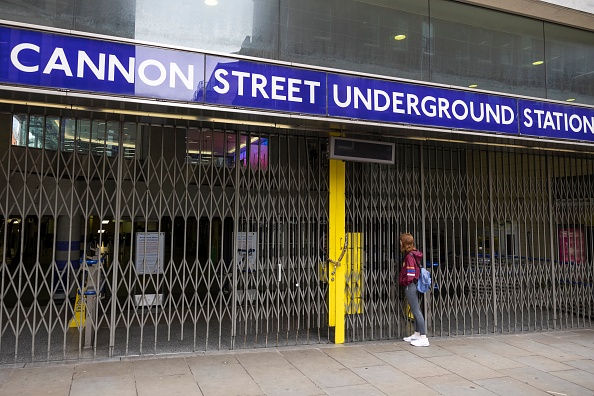Trade body hits out at government plans to break summer strikes with agency workers

A potential government plan to break a series of summer strikes by allowing employers to hire agency staff has been criticised as the “wrong policy” by a recruitment business body.
Neil Carberry, Chief Executive of the Recruitment & Employment Confederation (REC), said the newly touted plans puts “agency staff and agencies in a completely unfair position”.
Transport secretary Grant Shapps told the Sunday Telegraph that he is working with business secretary Kwasi Kwarteng on plans to slash a Tony Blair-era law that makes it illegal for agency staff to be brought in by companies during strikes.
Referring to an upcoming wave of public transport strikes, Shapps said the new law “would come in during this particular dispute, if it can’t be resolved”.
The reversal was originally promised in David Cameron’s 2015 election winning manifesto and would apply to all sectors.
“I can’t over-stress our determination to get the right outcome for the travelling public in the end on this, even if the unions insist on putting the country through considerable pain in the meantime,” Shapps said
The Recruitment & Employment Confederation (REC), a business body for the recruitment industry, said they were not in favour of the policy.
Carberry said: “Repealing the ban on agency workers replacing workers who are on strike is the wrong policy. It puts agency staff and agencies in a completely unfair position.
“Government’s focus, like any other employer, should always be on trying to resolve the issues in an industrial dispute. The REC will strongly oppose any moves to change the law.”
The National Union of Rail, Maritime and Transport Workers (RMT) have planned rail strikes on 21, 23 and 25 June over pay and redundancies.
The industrial action is being described by the union as the most disruptive rail strikes in three decades.
More than 40,000 workers are expected to walk off the job over the three days.
Shapps said: “The country must not continue to be held to ransom. These strikes are incredibly premature and we will use every possible lever to ensure that the public is protected in the future in particular.
“I can’t over-stress our determination to get the right outcome for the travelling public in the end on this, even if the unions insist on putting the country through considerable pain in the meantime.”
Kevin Barrow, a partner at law firm Osborne Clarke, said that under current laws “it is not a criminal offence for the employer organisation to use such staff – the offence lies with the staffing company, though obviously there may be legal implications for an employer organisation which knowingly uses a law-breaking supplier”.
“It does not prevent an outsourcing company contracting with an employer organisation and agreeing to take over a service on a contracted out basis.”